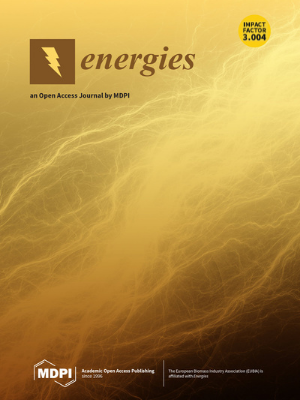Adaptive Control Approach for Accurate Current Sharing and Voltage Regulation in DC Microgrid Applications
IF 3.2
4区 工程技术
Q3 ENERGY & FUELS
引用次数: 0
Abstract
A DC microgrid is an efficient way to combine diverse sources; conventional droop control is unable to achieve both accurate current sharing and required voltage regulation. This paper provides a new adaptive control approach for DC microgrid applications that satisfies both accurate current sharing and appropriate voltage regulation depending on the loading state. As the load increases in parallel, so do the output currents of the distributed generating units, and correct current sharing is necessary under severe load conditions. The suggested control approach raises the equivalent droop gains as the load level increases in parallel and provides accurate current sharing. The droop parameters were checked online and changed using the principal current sharing loops to reduce the variation in load current sharing, and the second loop also transferred the droop lines to eliminate DC microgrid bus voltage fluctuation in the adaptive droop controller, which is different and inventive. The proposed algorithm is tested using a variety of input voltages and load resistances. This work assesses the performance and stability of the suggested method using a linearized model and verifies the results using an acceptable model created in MATLAB/SIMULINK Software Version 9.3 and using Real-Time Simulation Fundamentals and hardware-based experimentation.在直流微电网应用中实现精确分流和电压调节的自适应控制方法
直流微电网是一种结合多种电源的有效方式;传统的降压控制无法同时实现精确的电流分担和所需的电压调节。本文为直流微电网应用提供了一种新的自适应控制方法,可根据负载状态同时满足精确的电流分担和适当的电压调节。随着并联负载的增加,分布式发电机组的输出电流也会增加,因此在恶劣的负载条件下,必须正确分流。所建议的控制方法会随着并联负载水平的增加而提高等效下垂增益,并提供精确的电流分担。利用主分流环路在线检查并更改下垂参数,以减少负载电流分担的变化,第二环路还转移了下垂线路,以消除自适应下垂控制器中的直流微电网母线电压波动,这一点与众不同,别出心裁。利用各种输入电压和负载电阻对所提出的算法进行了测试。这项工作使用线性化模型评估了建议方法的性能和稳定性,并使用 MATLAB/SIMULINK 软件 9.3 版创建的可接受模型、实时仿真基础和基于硬件的实验验证了结果。
本文章由计算机程序翻译,如有差异,请以英文原文为准。
求助全文
约1分钟内获得全文
求助全文
来源期刊

Energies
ENERGY & FUELS-
CiteScore
6.20
自引率
21.90%
发文量
8045
审稿时长
1.9 months
期刊介绍:
Energies (ISSN 1996-1073) is an open access journal of related scientific research, technology development and policy and management studies. It publishes reviews, regular research papers, and communications. Our aim is to encourage scientists to publish their experimental and theoretical results in as much detail as possible. There is no restriction on the length of the papers. The full experimental details must be provided so that the results can be reproduced.
 求助内容:
求助内容: 应助结果提醒方式:
应助结果提醒方式:


